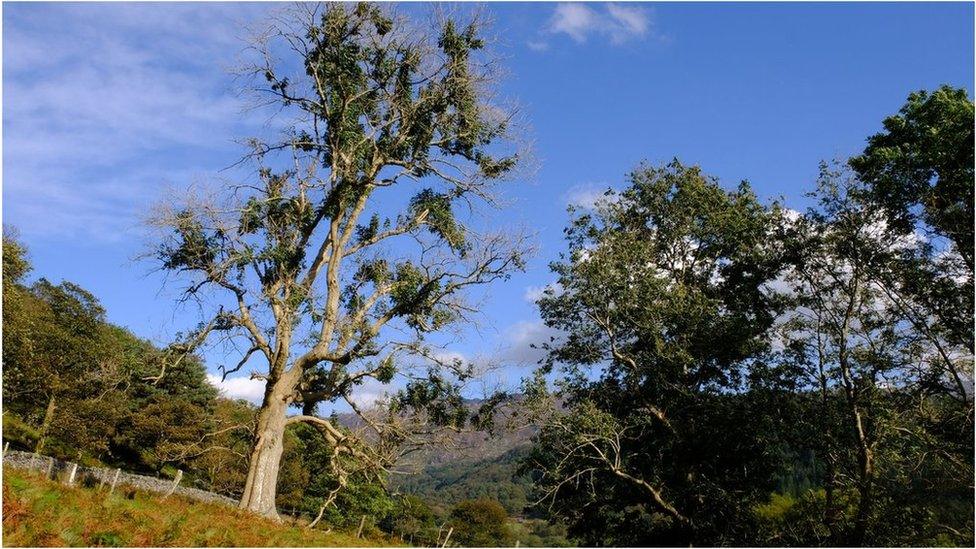Ash dieback disease costing councils in the South millions
- Published
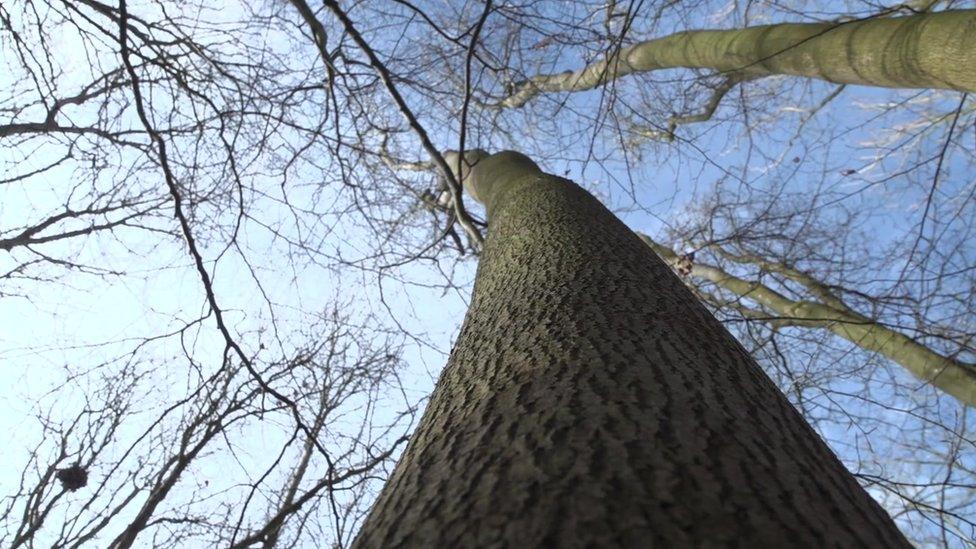
Hampshire County Council has already removed 15,000 trees due to ash dieback
An airborne tree fungus is costing local authorities across the south of England millions of pounds.
A Freedom of Information request by the BBC has revealed the financial impact of ash dieback.
The disease was first detected in the UK in 2012 and Hampshire County Council confirmed it had spent more than £3m removing 15,000 trees.
Experts now fear ash dieback could kill more than 70% of the UK's native ash tees.
The fungus starts by infecting the leaves of a tree, before going into the branches and the trunk.
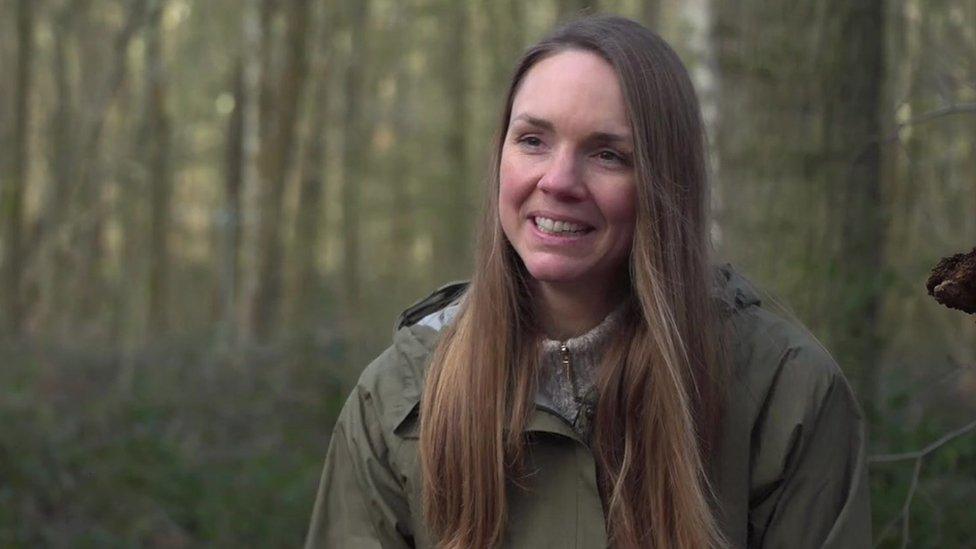
Dr Cecilia Dahlsjö is part of a research team in Oxfordshire monitoring the spread of ash dieback
Dr Cecilia Dahlsjö is a senior researcher at the University of Oxford and works as part of a team monitoring 20,000 trees in Wytham Woods.
She said ash dieback "strangles" the tree, adding: "It takes away nutrients and water and that weakens the tree - making it more susceptible to climate stress, but also other pathogens such as the honey fungus."
This means branches can give way or the whole tree can fail, which leads to local authorities spending money to fell the diseased trees as there is a risk to the public.
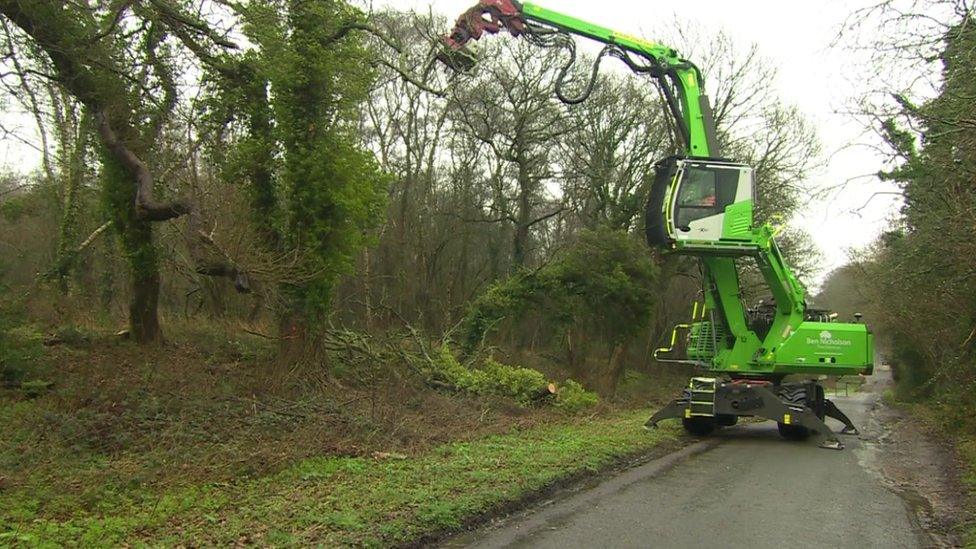
Local authorities have estimated the total cost of ash dieback to the UK economy is £15bn
Hampshire County Council has estimated it will spend more than £1.8m managing dangerous trees in the next three years.
Meanwhile, research by the University of Oxford, external has estimated the total cost of ash dieback to the UK economy as £15bn.
James Lovegrove, senior project officer for ash dieback, said: "It's certainly going to get worse before it gets better I believe.
"We're going to see more decline in the trees and certainly more trees failing over the years to come."Professor Richard Buggs, a scientist at the Royal Botanic Gardens in Wakehurst, West Sussex, is working to create more resilient varieties of ash.
Part of his research involves identifying different species of ash, by creating a DNA barcode, which will aid future replanting and improved biosecurity.
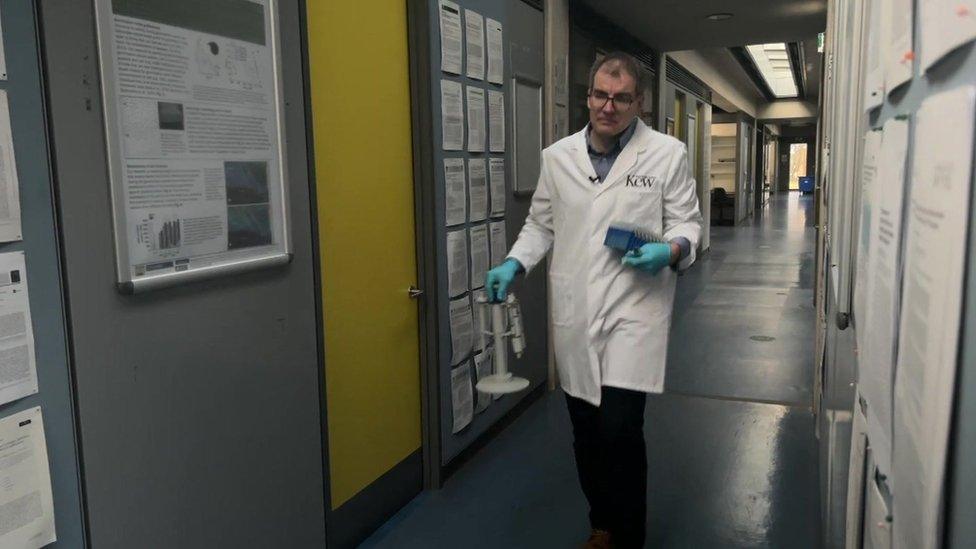
Professor Richard Buggs is part of a team working to create more resilient varieties of ash
Professor Buggs explained: "One by one we're losing our trees for planting and we've got to do something about that.
"Either thinking about other closely related species from abroad, that are adapted to our future climates and future pathogens, or breeding our trees so they're more resistant."

Follow BBC South on Facebook, external, X, external, or Instagram, external. Send your story ideas to south.newsonline@bbc.co.uk or via WhatsApp on 0808 100 2240, external.
- Published26 May 2023
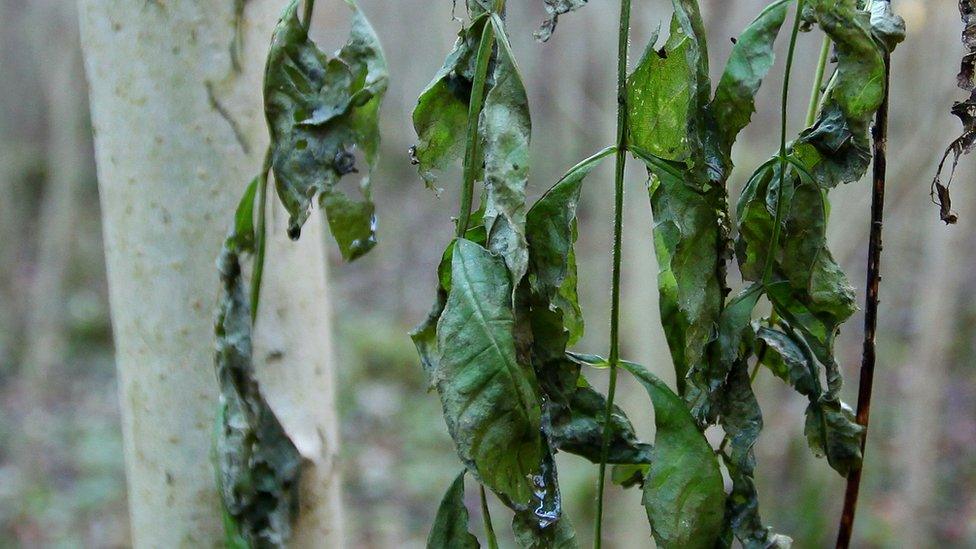
- Published2 November 2022
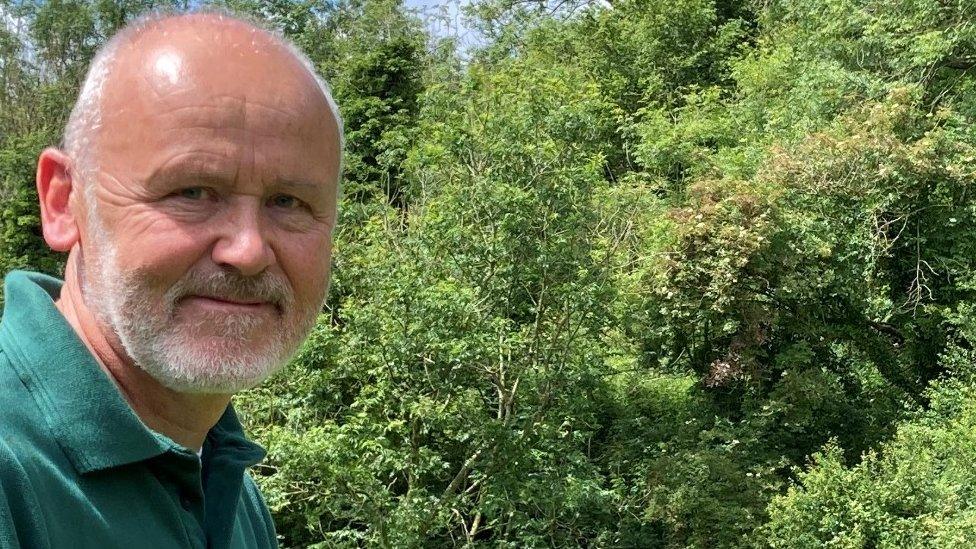
- Published31 March 2022
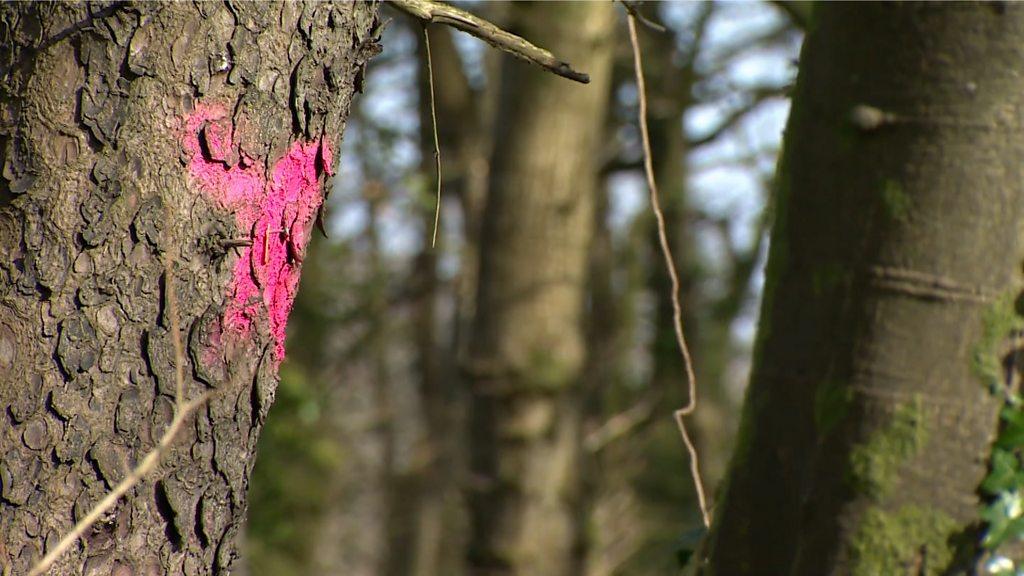
- Published6 May 2019
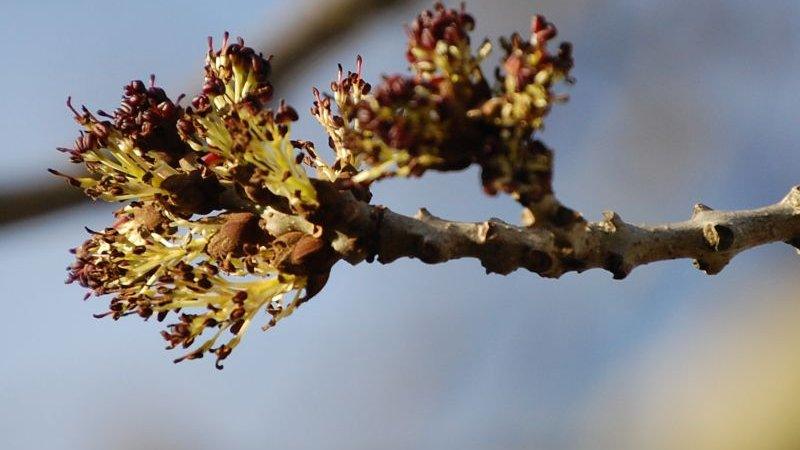
- Published18 November 2019
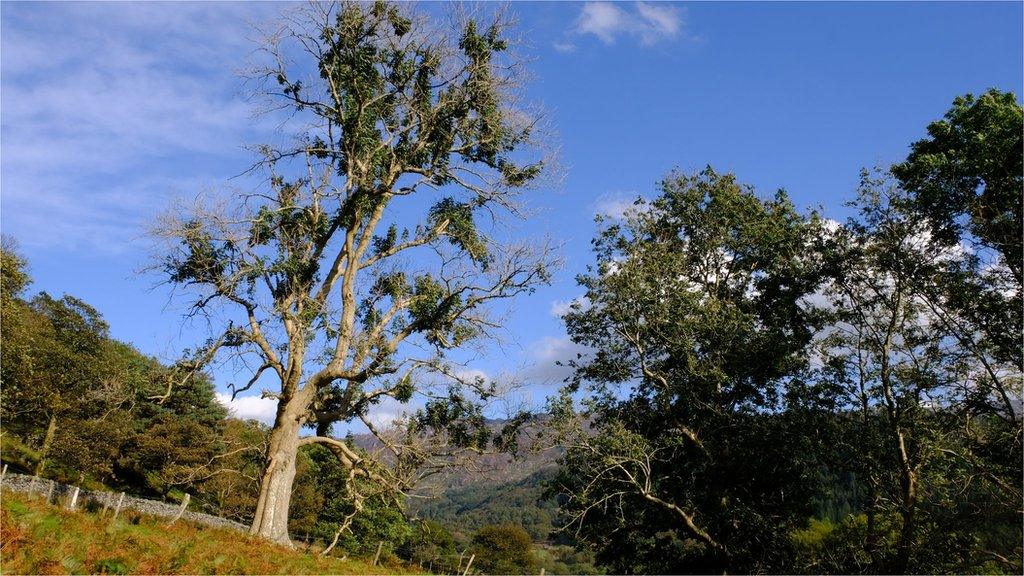
- Published17 January 2020
